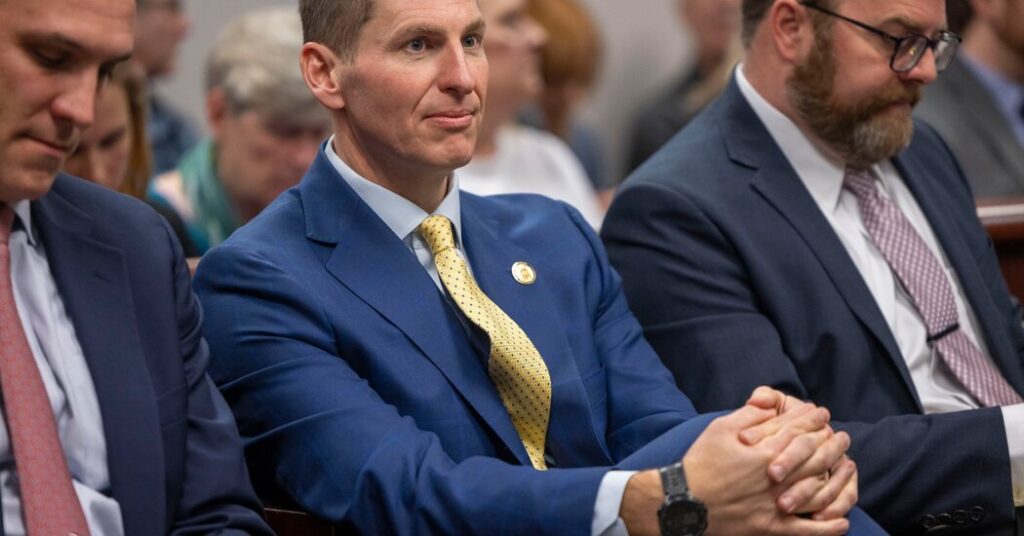In the prolonged legal battle over a North Carolina Supreme Court seat, a state appeals panel ruled on Friday that tens of thousands of voters would need to promptly verify their eligibility or have their ballots thrown out. The decision could lead to the results of the November election being overturned.
The ruling was a win for Judge Jefferson Griffin, a Republican who narrowly lost the election in November and challenged the result. His opponent, Justice Allison Riggs, is one of two Democrats on the seven-member Supreme Court. The case has tested the boundaries of post-election litigation and drawn wide criticism.
Judge Griffin’s legal argument centers on a claim that some 65,000 people who voted early or by mail in the Supreme Court election did not provide required proof of identity — either the last four digits of a Social Security number or a driver’s license number — when they registered.
Although the omissions were no fault of the voters, he has argued, they left the voters’ eligibility in question. He has said that their ballots should be thrown out unless they provide legitimate proof of identity within a limited period of time set by the state.
Two Republican judges on the North Carolina Court of Appeals, John Tyson and Fred Gore, agreed with Judge Griffin in the majority opinion for the three-judge panel, arguing that even one unlawful vote essentially “disenfranchises lawful voters.” They ruled that the voters in question “should be allowed a period of 15 business days after notice to cure their defective registrations.”
It is not immediately clear what that verification process would look like, especially for overseas voters.
The State Board of Elections, the ruling said, should then “omit from the final count the votes of those voters who fail to timely cure their registration defects.”
A Democratic judge on the appeals panel, Toby Hampson, dissented, writing that “changing the rules” after an election for only one race was “directly counter to law, equity and the Constitution.”
The majority on the panel also wrote that “Never Residents” voters — those who have never lived in North Carolina but are registered to vote there — should have their ballots tossed out because they were ineligible to cast them. These voters typically includes the children of military parents who turn 18 while their family is stationed abroad.
A bipartisan state law passed in 2011 says that such people are allowed to vote in North Carolina. But the ruling on Friday disagreed, citing the State Constitution.
The ruling will almost certainly be appealed to the State Supreme Court by Justice Riggs, who won her race by 734 votes out of the more than 5.5 million ballots that were cast last fall, according to three separate counts by the elections board.
Judge Griffin, who now sits on the state appeals court that ruled on Friday, has refused to concede, embarking on an extraordinary effort to wipe away that result. (He has recused himself in this case.)
The election challenge has spurred outrage among both Democratic and Republican voters in North Carolina, which now has the last uncertified statewide race in the nation. Election experts and government watchdogs have warned that a successful challenge could undermine future elections and provide a blueprint for challenging close races.
The elections board and Justice Riggs’s lawyers have said in court that voters should not be punished for a supposed administrative error that was not their fault. Retroactively tossing out their ballots, they argue, would amount to changing the rules after the game has been played.
The North Carolina Republican Party has firmly stood behind Judge Griffin, even as members of the party have expressed reservations about his protest, especially conservatives whose votes could be thrown out.

